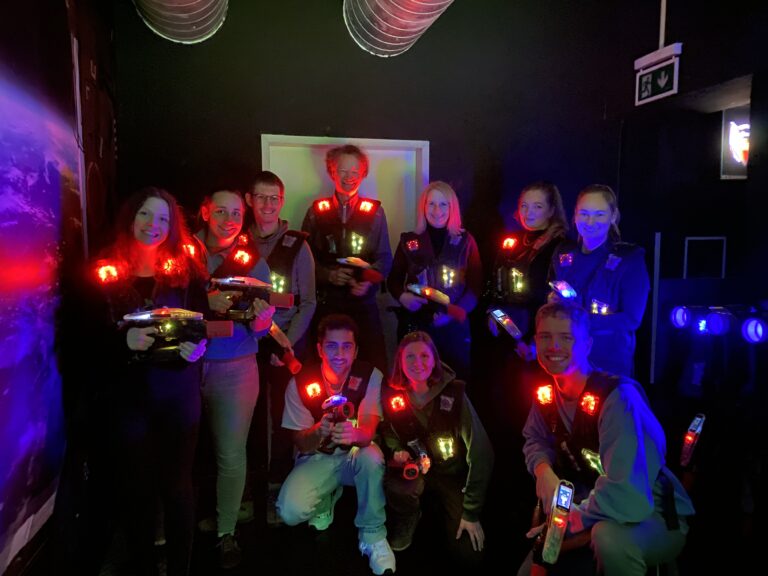International Economics
About us
At the Chair of International Economics, our teaching and research are mainly concerned with international trade and international monetary economics. We look at the causes and effects of international trade in goods and services as well as international capital flows (especially foreign direct investment). In this context, we are particularly interested in countries with a low- and middle-income level (so-called emerging-market or developing countries).

Team
Prof. Dr. Matthias Busse
Professor
Chair of International Economics and Dean of the Faculty of Management and Economics
Anja Deeken
Employee in technology and administration
Dr. Nina Kupzig
Scientific assistant
Johanna Meier
Scientific assistant
Paul Stricker
Scientific assistant
Joana Sulaj
Scientific assistant
M. Sc. Economics
Prof. Dr. Joscha Beckmann
Alumna/Alumnus, Guest Professor, Lecturer
Dr. Thomas Koch
Lecturer
Teaching
The Chair offers a wide range of lectures, tutorials and seminars in the areas of international trade and international finance as well as in development economics. If you click on the individual modules, you will get information on the respective course.
Information on:
Paper Assignment
According to the bachelor degree regulations, every bachelor student has to write a seminar paper (“Hausarbeit”) during their course of study. You may complete this requirement by taking the seminar Case Studies in International Economics. The chair offers this seminar at least once a year. While preparing your seminar paper, we kindly ask you to adhere to the general rules of scientific writing. Please find our guidelines on scientific writing here.
Bachelor’s Thesis
The Chair of International Economics would be glad to supervise your bachelor thesis in the area of international trade or finance. If you are interested, please send a short note including your transcript of records to Paul Stricker.
Please note the following requirements:
- General requirements according to the examination regulations, e.g., number of credit points, term paper (“Hausarbeit”), and
- Completion of the module Foundations of International Trade or International Finance. Ideally, you have also attended the seminar Case Studies in International Economics offered by us.
If you have not fulfilled the second requirement, you can still write your bachelor thesis with us. In this case, however, we expect you to acquire basic knowledge of the subject on your own.
The registration for the bachelor thesis is done via the WiWi-BOS system of the faculty. You will receive a firm acceptance for your bachelor thesis if you have passed one of the modules Foundations of International Trade, International Finance or Case Studies in International Economics with a good or excellent grade (2.0 or better) and if corresponding capacities are available at the chair. The topic of the thesis is always (!) given by the Chair of International Economics. However, you can choose whether you prefer to write in the field of trade or finance. You may write your bachelor thesis in German or English.
Instructions for writing academic papers can be found here.
Contact for all inquiries regarding bachelor theses: Paul Stricker.
Master’s Thesis
The Chair of International Economics would be glad to supervise your master thesis in the areas of international trade and finance as well as development economics. If you are interested, please send a short note including your transcript of records to Prof. Matthias Busse.
Important Note: During Mr Busse’s term of office as Dean, Master’s students can write a Master’s thesis at the Chair of International Economics even if they have not attended a seminar.
Please note the following three prerequisites:
- General requirements according to the examination regulations (completed modules amounting to at least 60 ECTS), and
- Completion of one of the modules International Trade, International Macroeconomics or African Economic Development, and
- Successful attendance of any seminar offered by the chair.
Please note that seminars offered by other chairs cannot be credited. However, we will accept seminars in international economics that you have successfully attended at other universities. We will be glad to discuss possible research questions with you and support you in choosing an appropriate topic. We highly appreciate your initiative in selecting a suitable topic for your master thesis. Guidelines for the preparation of scientific theses can be found here.
Contact for all inquiries regarding master theses:
Transfer Credits
As we are eager to encourage our students to study abroad, we support the transfer of credit points earned at foreign universities. Contact person for all inquiries regarding the transfer of credit points in (international) economics is Joana Sulaj.
Please note the following instructions before applying for credit transfer:
- Prior to studying abroad we recommend that you consult us about the courses you plan to take at the foreign university. By doing so, you can avoid issues with transferring credit points after your return.
- Graduate (Master) students cannot transfer credits for any undergraduate (Bachelor) courses. If you are enrolled in one of the RUB master programs, please make sure that you enroll in graduate or postgraduate courses only.
- After your study abroad you need to fill out the relevant sections in the form for credit transfer provided by the examination office. Please bring the filled out form and detailed information on the respective courses taken abroad (official transcript).
For a transfer of credit for courses in the area of macroeconomics, please consult the Chair of Macroeconomics. For enquiries in international economics (international trade, international finance or international macroeconomics) please contact Joana Sulaj. This applies to Bachelor and Master courses.
Teaching offers
Based on either the lecture “Foundations of International Trade” or the lecture “International Finance”,
the seminar will cover current topics in international economics, for example, trade protectionism or
international financial crises. Participants will write a seminar paper that addresses a specific economic
challenge. That includes a theoretical foundation, combined with empirical evidence and economic
policy implications.
Case Studies in International Economics
Seminar
2 contact hours
irreg.
In den letzten 50 Jahren beobachten wir in vielen Industrieländern langfristige Trends steigender
Arbeitslosigkeit, sinkender Inflationsraten und rückläufiger Wachstumsraten der Produktion und
Einkommen, die über kürzere Zeiträume von zyklischen Schwankungen dieser Größen überlagert werden.
In diesem Modul geht es zunächst um die Ursachen dieser gesamtwirtschaftlichen Entwicklungen (Makro-
Theorie). Hierfür werden grundlegende makroökonomische Modelle eingeführt und deren Vor- und
Nachteile besprochen. Auf dieser Grundlage werden die Möglichkeiten und Grenzen wirtschaftspolitischer
Einflussnahmen analysiert (Makro-Politik: Konjunktur-, Beschäftigungs-, Arbeitsmarkt-, und
Wachstumspolitik). Dabei kommt den Erwartungen der Wirtschaftsteilnehmer eine wichtige Rolle in Bezug
auf die Erfolge wirtschaftspolitischer Eingriffe zu.
Introductory Macroeconomics
Lecture and Tutorial
6 contact hours
SS
The seminar deals with different core topics in the area of international trade. It combines theoretical and empirical perspectives. For instance, the seminar deals with firm behavior on global markets, global value chains, trade policy or the nexus between trade and labor markets.
Seminar in International Economics
Seminar
2 contact hours
irreg.
This seminar will deal with specific issues in development economics. Usually it has a strong focus on development finance topics from a management and economics perspective. Students will apply analytical tools to understand these issues in developing countries, to examine empirical evidence, and to evaluate policy options for governments to promote development.
Seminar in Development Economics
Seminar
2 contact hours
SS
SS 2024
This course provides an intermediate level study of international trade theory and policy. We will
discuss various aspects of international trade at a fairly abstract and rigorous level. The issues that will
be addressed are, among others, the fundamental gains from trade, the implications of imperfect
competition for trade patterns and welfare, how firms of different sizes and productivities engage in
trade and investment, and justifications for policies that restrict trade. Also covered are the World
Trade Organisation (WTO) and regional and bilateral trade agreements.
International Trade
Lecture and Tutorial
3 contact hours
irreg.
Lorem Ipsum
Seminar in African Economic Development
Seminar
2 contact hours
WS
Research
In our research activities, we mainly focus on trade-related and institutional linkages between countries. We concentrate on inter- and intra-regional integration and institution building at the national and international level, as well as complementary aspects of financial and monetary policy. Regarding the regional focus of our research activities, we focus mainly on sub-Saharan Africa.
Research focus
Regionalism and regional trade policy
Foreign Direct Investment (FDI) and multinational corporations
Institution building in developing countries
Infrastructure in developing countries
Policies for sustainable food consumption
Research projects
Determinants of Foreign Direct Investment
Globalization and Industrialization
Institution Building and Good Governance in Developing Countries
Mitigating climate change in food consumption
Regional Integration in Sub-Saharan Africa
The Effect of Generator Ownership on Firm Productivity during Power Outages in East Africa
Trade Liberalisation and IMF Structural Adjustment Programs
Publications
Talea Bernatzki, Matthias Busse and Ruth Hoekstra,
Promoting Rwanda’s Business Environment: Impact of Reforms and Drivers of Change, Development Policy Review, Vol. 40 (2022), No.2, e12578.
Marvin Jahn and Paul Stricker
FDI, Liquidity, and Political Uncertainty: A Global Analysis, International Economics and Economic Policy (2022)
Johanna Meier, Mark Andor, Friederike Doebbe, Neal Haddaway and Lucia Reisch,
Do Green Defaults Reduce Meat Consumption?, Food Policy (2022)
Talea Bernatzki, Matthias Busse and Ruth Hoekstra,
Promoting Rwanda’s Business Environment: Impact of Reforms and Drivers of Change, Development Policy Review, Vol. 40 (2022), No.2, e12578.
Marvin Jahn and Paul Stricker
FDI, Liquidity, and Political Uncertainty: A Global Analysis, International Economics and Economic Policy (2022)
Johanna Meier, Mark Andor, Friederike Doebbe, Neal Haddaway and Lucia Reisch,
Do Green Defaults Reduce Meat Consumption?, Food Policy (2022)
Contact
You can contact us here:
International Economics
Mailing Address:
Ruhr-Universität Bochum
Faculty of Management and Economics
Building GD Box 41
Chair of International Economics
44780 Bochum, Germany
Visitor's Address:
Ruhr-Universität Bochum
GD Building, level 03, room 323
Universitätstraße 150
44801 Bochum
Telefon: +49 (0) 234 -32-28902
Phone:
E-Mail:
The chair belongs to the competence field:


